Agriculture tourism
گردشگری مزرعه چای: چشم انداز توسعه پایدار
Tea Farm Tourism: A Sustainable Development Perspective
گردشگری مزرعه چای به عنوان شکل فزاینده ای از گردشگری روستایی در سرتاسر جهان پدیدار شده است و به بازدیدکنندگان شهری و روستایی فرصتی برای تجربه تولید چای از منبع می دهد. در بسیاری از مناطق چایکار، گردشگری مزرعه چای به منبع درآمدی حیاتی برای خانوادهها و جوامع روستایی تبدیل شده است که به توسعه پایدار محلی کمک میکند. این مقاله مروری بر گردشگری مزرعه چای، مزایا، چالشها و فرصتهای آن ارائه میکند و چگونگی کمک آن به اهداف توسعه پایدار سازمان ملل (SDGs) را بررسی میکند.
:Summary
Tea farm tourism has emerged as an increasingly popular form of rural tourism across the world, offering visitors both urban and rural a chance to experience tea production from the source. In many tea-growing regions, tea farm tourism has become a vital source of income for families and rural communities, contributing to localized sustainable development. This article provides an overview of tea farm tourism, its benefits, challenges, and opportunities, and explores how it can contribute to the UN Sustainable Development Goals (SDGs)
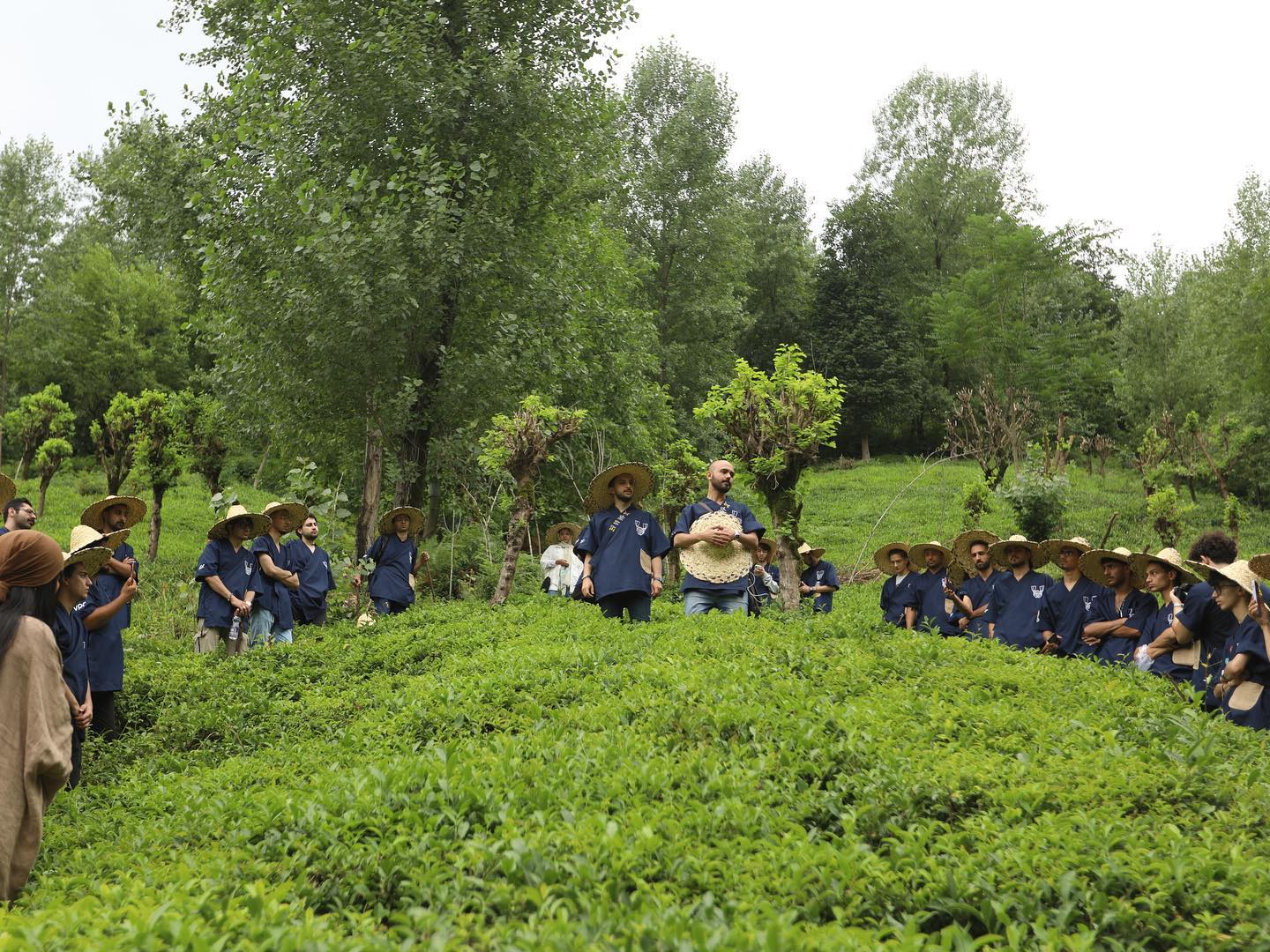
معرفی:
گردشگری چای یک شکل مسافرتی نوظهور و تجربی است که بر کاوش مزارع چای و فرآیند تولید متمرکز شده است. با افزایش روند گردشگری سبز، گردشگری چای در بین مسافرانی که به دنبال یک تجربه منحصر به فرد و اصیل روستایی هستند، محبوبیت پیدا کرده است. این نوع گردشگری می تواند برای اقتصاد روستایی درآمد داشته باشد، درک فرهنگی را افزایش دهد و حفاظت از محیط زیست را ارتقا دهد. اگرچه گردشگری مزرعه چای عمدتاً در کشورهایی مانند هند، سریلانکا، چین و غیره بوده است. مزارع چای در سایر کشورهای چایکار مانند ژاپن و کنیا به طور فزاینده ای محبوب می شوند.
:Introduction
Tea tourism is an emerging, experiential travel niche focused on exploring tea plantations and the production process. With the rise of green tourism trends, tea tourism has gained popularity among travellers looking for a unique and authentic rural experience. This type of tourism can bring revenue to rural economies, increase cultural understanding, and promote environmental conservation. Although tea plantation tourism has been primarily in countries such as India, Sri Lanka, China, etc. tea farms are becoming increasingly popular in other tea-growing countries such as Japan and Keny
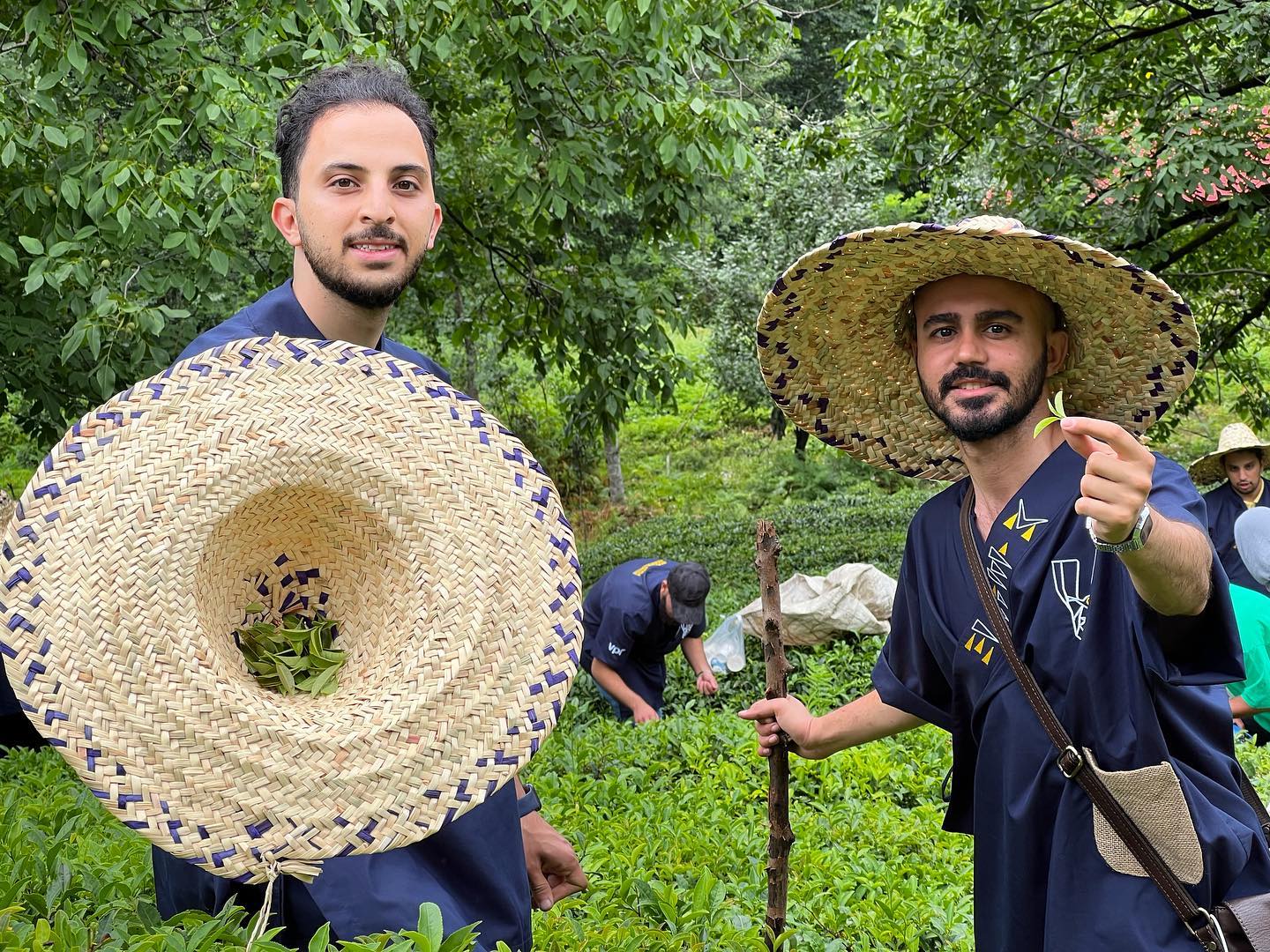
متن اصلی:
گردشگری مزرعه چای فراتر از بازدید از املاک چای است. این به گردشگران اجازه می دهد تا فرهنگ و میراث، زبان، آداب و رسوم و عادات روزانه مردم محلی که در صنعت چای کار می کنند را تجربه کنند. این مفهوم برای مصرف کنندگان جذاب است زیرا دیدگاه جدیدی در مورد آنچه که معمولاً می تواند یک ماجراجویی فرهنگی معمولی باشد ارائه می دهد. برخی از صاحبان املاک چای پیشنهادات خود را با چشیدن چای، بازدید از کارخانه های چای، پیاده روی و پیاده روی در باغ های چای، تماشای پرندگان، و حتی تجربیات کشاورزی ارگانیک گسترش داده اند.
:Main Text
Tea farm tourism is more than visiting tea estates; it allows tourists to experience the culture and heritage, language, customs, and daily habits of locals who work in the tea industry
This concept is appealing to consumers because it offers a new perspective on what could ordinarily be a typical cultural adventure. Some tea estate owners have expanded their offerings with tea tasting, visiting tea factories, trekking and hiking around tea gardens, bird watching, and even organic farming experiences
گردشگران همچنین می توانند در فعالیت های اجتماعی مانند اقامت با خانواده میزبان یا تجربه جشنواره های محلی مانند مراسم چای ژاپنی شرکت کنند. علاوه بر این، تورهای مزرعه چای به دلیل تمرکز بر روی روش های دوستدار محیط زیست، کمترین تأثیر را بر محیط زیست دارند. استفاده از شیوهها و مواد کشاورزی پایدار اغلب به تلاشهای حفظ ذخایر طبیعی منجر میشود و زیستگاههای جدیدی را برای اکوتوریسم ایجاد میکند.
Tourists can also participate in social activities like staying with a host family or experiencing local festivals such as the Japanese Tea Ceremony. In addition, tea farm tours tend to have minimal impact on the environment because of a focus on eco-friendly practices. The use of sustainable farming practices and materials often leads to preservation efforts of natural reserves and creates new habitats for eco-tourism
گردشگری مزرعه چای فرصتی منحصر به فرد برای توانمندسازی اقتصادی جوامع روستایی با فراهم کردن فرصتهای درآمد پایدار برای چایکاران، که در غیر این صورت درآمد بسیار محدودی خواهند داشت، ارائه میکند. این نوع گردشگری تضمین می کند که پول تولید شده در صنعت کشاورزی در خود جامعه باقی می ماند و برنامه های توسعه جامعه محور را ایجاد می کند.
Tea farm tourism offers a unique opportunity to economically empower rural communities by providing stable income opportunities to tea growers, who would otherwise have very limited income. This type of tourism ensures that money generated within the agricultural industry remains within the community itself, creating community-driven development programs
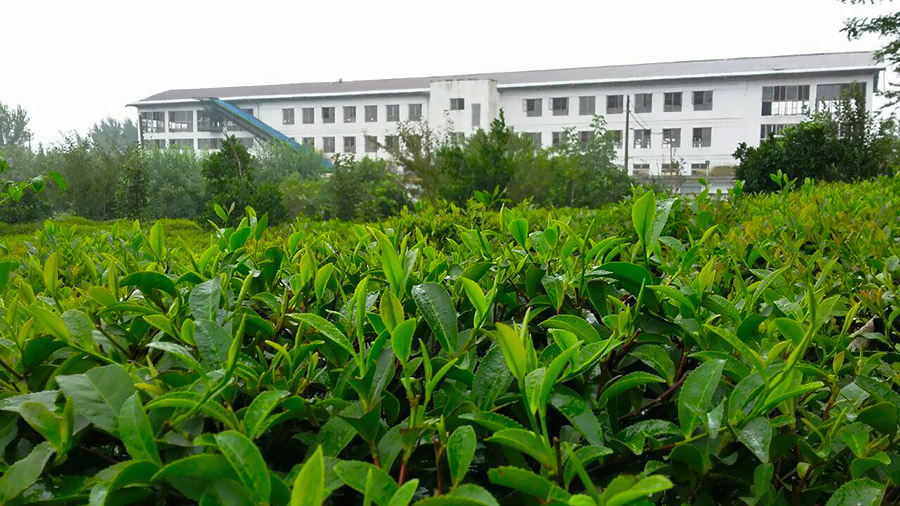
با توجه به اینکه حدود 75 درصد از فقرای جهان در مناطق روستایی زندگی می کنند، گردشگری رونق بسیار مورد نیاز را برای اقتصادهای محلی فراهم می کند. این امر شمول اجتماعی را ترویج میکند و به مبارزه با فقر کمک میکند، که هر دو اهداف کلیدی هستند که با اهداف توسعه پایدار (SDGs) مورد تایید سازمان ملل متحد هستند. با افزایش گردشگری، دولت ها انگیزه ای برای سرمایه گذاری در زیرساخت هایی مانند جاده ها، آب و امکانات بهداشتی برای حمایت از رشد بخش گردشگری و همچنین جوامعی که از آن حمایت می کنند، دارند.
With an estimated 75 percent of the world's poor living in rural areas, tourism provides a much-needed boost to local economies. It promotes social inclusion and helps fight poverty, which are both key objectives that align with the UN-approved Sustainable Development Goals (SDGs). With increased tourism, governments have an incentive to invest in infrastructures like roads, water, and healthcare facilities to support the growth of the tourism sector as well as the communities that support it
در حالی که مزایای متعددی برای گردشگری مزرعه چای وجود دارد، چالشهایی مانند مدیریت گردشگری مسئولانه، حفظ اصالت و فرهنگ جوامع میزبان، و اطمینان از اینکه جوامع حداکثر سود را از نظر درآمد و اشتغال دریافت میکنند نیز وجود دارد. این چالشها را میتوان با ترویج مدلهای حکمرانی فراگیر، مشارکت با تعاونیهای محلی، سرمایهگذاری در توسعه و آموزش نیروی کار، و استفاده از شیوههای پایدار و فناوری برطرف کرد.
While there are numerous benefits to tea farm tourism, there are also challenges such as managing responsible tourism, maintaining authenticity and culture of host communities, and ensuring that communities receive the maximum benefit in terms of revenue and employment. These challenges can be addressed by promoting inclusive governance models, partnering with local cooperatives, investing in workforce development and training, and utilizing sustainable practices a nd technology
نتیجه:
این مقاله نتیجه می گیرد که گردشگری مزرعه چای تأثیر قابل توجهی بر تمام جنبه های توسعه پایدار دارد. این یک رویکرد مدرن و جایگزینی برای مدلهای گردشگری سنتی است. صاحبان مزارع چای و مقامات محلی باید با یکدیگر همکاری کنند تا شراکت هایی ایجاد کنند که صنعت گردشگری مسئولانه و پایدار را ارتقا دهد و در عین حال بخش های کلیدی بازارهای مقصد ارزشمند را هدف قرار دهد. حمایت از بخش گردشگری چای میتواند به ایجاد جایگزینهای پایداری که باعث رشد اقتصادی فراگیر و حمایت از اهداف حفاظتی میشوند، کمک کند.
:Conclusion
The article concludes that tea farm tourism has a significant impact on all aspects of sustainable development; it represents a modern approach and an alternative to traditional tourism models. Tea plantation owners and local authorities should work together to build partnerships that promote a responsible and sustainable tourism industry while targeting key segments of valuable destination markets. Supporting the tea tourism sector can help to create sustainable alternatives that generate inclusive economic growth and support conservation goals
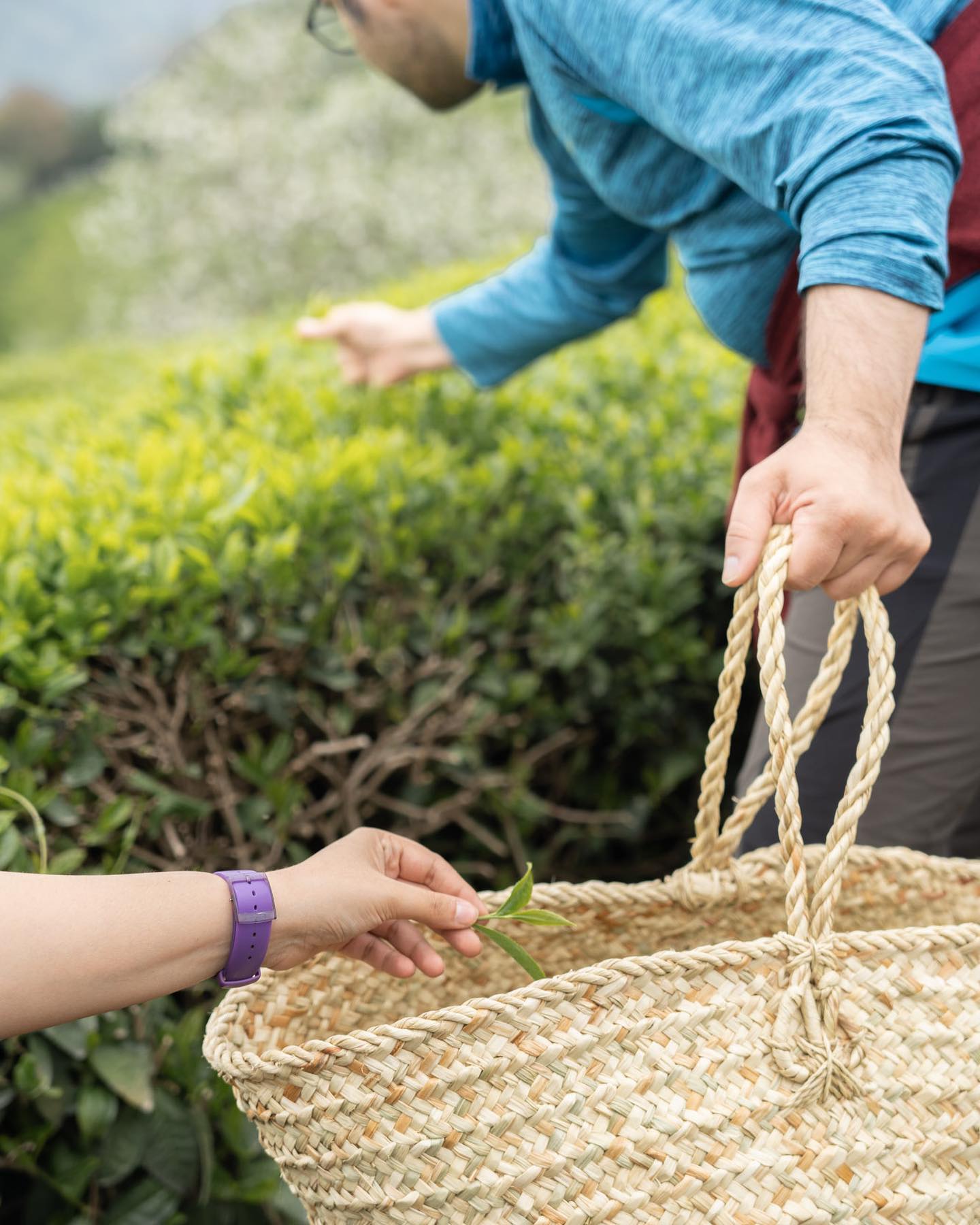
Part II
Exploring the Potential for Tea Farm Visiting Tourism: Benefits for Income Generation and Sustainability
بررسی پتانسیل گردشگری بازدید از مزرعه چای: فواید برای درآمدزایی و پایداری
:Abstract
This research paper explores the possibility of promoting tea farm visiting tourism as a means of generating income and promoting sustainability in the local community
The paper investigates the potential demographic of tourists interested in tea farm visiting tours, the economic and social benefits of the industry, the promotion and management of such tours, and the impacts on the environment and community. The research concludes that tea farm visiting tourism holds excellent potential for generating income and creating a sustainable future for the tea industry and its local community
خلاصه:
این مقاله تحقیقاتی امکان ترویج گردشگری مزرعه چای را به عنوان ابزاری برای تولید درآمد و ارتقای پایداری در جامعه محلی بررسی میکند. این مقاله به بررسی جمعیت بالقوه گردشگران علاقه مند به بازدید از تورهای مزرعه چای، مزایای اقتصادی و اجتماعی صنعت، ترویج و مدیریت چنین تورهایی، و اثرات آن بر محیط زیست و جامعه می پردازد. این تحقیق نتیجه می گیرد که بازدید از مزرعه چای از گردشگری دارای پتانسیل بسیار خوبی برای درآمدزایی و ایجاد آینده ای پایدار برای صنعت چای و جامعه محلی آن است.
Introduction:
Tea is one of the world's most popular hot beverages and is grown in numerous countries across the globe. The tea industry provides livelihoods for millions of people worldwide and generates billions of dollars each year. However, the industry faces numerous challenges, including climate change, low productivity, high production costs, and market volatility. One way to overcome these challenges is by promoting tea farm visiting tourism. This paper explores this possibility
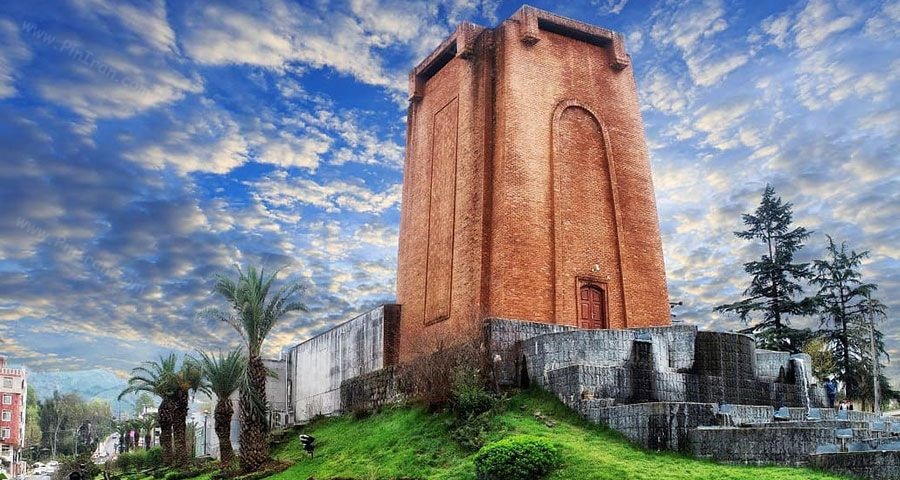
معرفی:
چای یکی از محبوب ترین نوشیدنی های گرم در جهان است و در کشورهای متعددی در سراسر جهان کشت می شود. صنعت چای امرار معاش میلیون ها نفر در سراسر جهان را فراهم می کند و سالانه میلیاردها دلار درآمد دارد. با این حال، این صنعت با چالش های متعددی از جمله تغییرات آب و هوایی، بهره وری پایین، هزینه های تولید بالا و نوسانات بازار مواجه است. یکی از راههای غلبه بر این چالشها، ترویج گردشگری مزرعه چای است. این مقاله این احتمال را بررسی می کند.
[ علاوه بر آن سیستم مدیریت ناکارآمد دولتی بر صنعت چای باعث از بین رفتن باغات و تبدیل آن ها به ویلا و ساختمان های مسکونی شده است . با برگزاری تورهایی با این موضوع میتوان باعث درآمدزایی بیشتر کشاورزان شد و شاید انگیزه ای برای حفظ باغات چای باشد . ] (4)
:Results
The study found that tea farm visiting tourism has the potential to generate significant income for tea farmers, their families, and communities. Additionally, it offers visitors a unique cultural experience, boosting the tea industry's promotion and exposure. It can also promote environmental conservation as tourists develop an appreciation of the relationship between sustainable farming practices and the resulting tea flavors. However, careful planning and promotion are necessary to ensure that tourists respect the environment, culture, and traditions of local communities, thereby minimizing any negative socio-cultural and environmental impacts
نتایج:
این مطالعه نشان داد که بازدید از گردشگری مزرعه چای پتانسیل ایجاد درآمد قابل توجهی برای کشاورزان چای، خانوادهها و جوامع دارد. علاوه بر این، به بازدیدکنندگان یک تجربه فرهنگی منحصربفرد ارائه میکند که باعث ارتقای صنعت چای و قرار گرفتن در معرض آن میشود. همچنین می تواند حفاظت از محیط زیست را ترویج دهد زیرا گردشگران از رابطه بین شیوه های کشاورزی پایدار و طعم های چای ناشی از آن درک می کنند. با این حال، برنامه ریزی و ترویج دقیق برای اطمینان از اینکه گردشگران به محیط زیست، فرهنگ و سنت های جوامع محلی احترام می گذارند ضروری است و در نتیجه هرگونه اثرات منفی اجتماعی- فرهنگی و زیست محیطی را به حداقل می رساند.

:References
1.
Cooper, C. and Hall, M. (2018). Contemporary Tourism: An International Approach. Routledge
2.
Zhang, Y., Li, X., and Li, W. (2019). Exploring the Potential of Tea Plantation Tourism: A Study of China’s Ancient TeaHorse Road. Sustainability, 11(5), 1380
3.
Shin, H., Kang, J., and Koo, C. (2018). The relationship between tea experiences, emotional experiences, and the attitude of tourists towards tea tourism experience: A case study of Boseong, Korea. Sustainability, 10(6), 1827
Masoud esfahan
استخراج و ترجمه : مسعود اصفهانی محقق و پژوهشگر چای
Phone number: +98 919 436 1293
Instagram: masoud_esfahani.a.a
همه نظرها (۰)